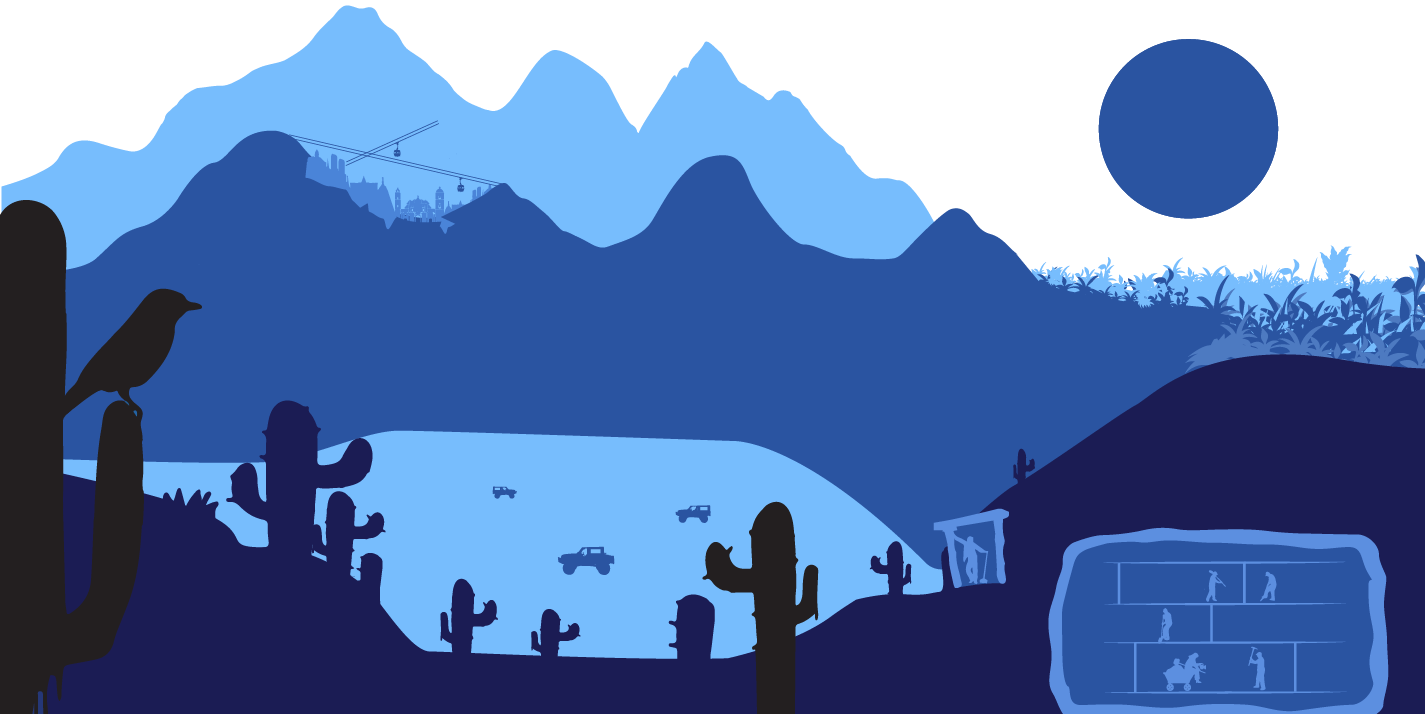
For information regarding our vaccination policies, safety protocols and other requirements visit our Travel Safety Center

What to expect: Days are full and often starting early and continuing until evening. Days can have many hours in touring vans or long periods of standing and/or walking. Walking can be difficult at times: over uneven terrain, up hills, and stairs (often without handrails). Many of the accommodations do not have elevators.
Appropriate for: Travelers who are physically fit and comfortable with long days of travel and walking.

First day starts at 3:30pm with the welcome meeting. The tour ends at the hotel checkout of the last day.

Small groups with one to two guides at a time.

Altitude sickness can occur at altitudes 8,000 ft or above. Anyone can develop altitude sickness no matter how fit, healthy or young. All travellers should research altitude sickness, so as to be aware of the symptoms and consult their physicians with any concerns they may have.


The cities visited on the tour, including La Paz, Rurrenabaque, Uyuni, Potosí and Sucre, have many restaurants to accommodate many diets. The more remote locations, such as Madidi, the Pampas and the overlanding locations have meals provided and can accommodate vegetarian and vegan diets. Strict diets requiring strict separation of foods and special food handling cannot be guaranteed. We can help to provide access to markets before the expeditions and provide small cooler bags for you to buy and bring your own food along (ice is possible before the expedition starts, but there is no ice available after that until returning to Uyuni). If meals are included for these days, you will not be refunded for having provided your own food.

All accommodations are carefully selected for location, charm, cleanliness and service. Lodging varies based on location with the goal of three star accommodations. Some locations will have basic accommodations, including traditional and rustic lodges. Tour prices are based on double occupancy, but private rooms are available. However, they may not be at all tour itinerary locations. Lodging in Madidi and the Pampas are situated in wilderness settings and owned and operated by indigenous tribes. The lodging is traditional with shared rooms of varying occupancies and often shared bathrooms. Clean linen and pillows are provided with full mosquito nets as there is no glass in the windows. There is no internet or cellular service. Electricity is limited to when the generators run (usually 1.5 to 3 hours a day). There is no hot water, air conditioning or heating. Accommodations on the overlanding area through Salar de Uyuni and Atacama have shared group rooms and a shared small bathroom (shower is not available). There is no internet or cellular service. Electricity is limited to when the generators run (usually 1.5 to 3 hours a day) and hot water is limited or not available. There is no air conditioning or heating.

Bolivia has incredibly diverse landscapes and tourism is low compared to many other South American countries (albeit increasing quickly). Because of this, many of the amenities associated with more well-trodden locations are not available. So, it is hard to visit Bolivia without feeling like an explorer!
You should approach the tour with a flexible mindset. Due to the aforementioned lack of many amenities, travel can be difficult at times. Roads are not in the best condition (usually dirt except for the largest cities) and detours are common due to landslides and flooding. Roads can also be closed for many hours due to protests that are not rare occurrences. Flights, especially to Rurrenabaque, are often delayed or canceled, and the itinerary is structured to allow for flexibility, but that might require changing the intended route and modifying the destinations visited. Attractions can be closed without warning and for no apparent reason. Go BIG has a network of friends in the industry throughout Bolivia and therefore many options and experience navigating the area. Most tours will go according to the itinerary, but you should approach the tour with the idea that you are on an adventure and potential last minute changes are part of that adventure!

We pride ourselves on trying to maximize the comfort for travelers. When possible we get far larger vans than required to allow more space for spreading out. Transportation on the tour is varied to say the least! From planes to jeeps, moto rized canoes, log rafts, mountain bikes, taxis and tour vans. For the overlanding in Salar de Uyuni, Atacama and the Pampas, we try to put a maximum of four travelers plus the driver where most other companies will pack one or even two more people in each vehicle. The vehicles are usually Toyota Land Cruisers, chosen for their durability. They are rarely newer than 10 years old and often show their wear. The boats in the rainforest and Pampas are made for utility and not comfort. Boat rides are usually fairly short (usually less than 1.5 hours) and provide little protection from the elements. So when it rains, you are likely going to get wet and some wetness can be expected on the sunniest of days. The planes are small jets and prop planes and are on par with most economy airlines.
“Private” transportation includes ticketed transportation such as for buses and trains.